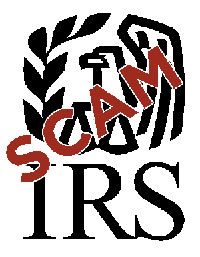
TOP 5 ALASKA SCAMS OF 2015
January 01, 2016
“Scammers are elusive,” says Tyler Andrew, President and CEO of BBB serving Alaska, Oregon and Western Washington. “With Scam Tracker, consumers and law enforcement can track fraud in real time and report it so that no one else falls victim.” 2. IRS Scam: Consumers receive threatening phone calls from someone claiming to be with the IRS. The caller tells the consumer he owes taxes to the government and will be thrown in jail unless he pays. The IRS says they never call people who owe money; instead, they notify debtors via mail. 3. Imposter Scam: Like the IRS scam, fraudsters pose as a federal agent or law enforcement and then contact unsuspecting consumers to try and obtain their personal information. If the scammers succeed, they’re able to steal identities and commit fraud. 4. Debt Collections: Fake collection agencies call and claim consumers owe credit card debt. They try to gather personal information such as Social Security and bank account numbers. 5. Credit Cards: Scammers tell consumers they are eligible for a lower interest rate. The consumer provides the scammer their credit card number and security code to “verify” their identity. In Southeast Alaska in 2015, the BBB received one imposter IRS Scam report from Prince of Wales Island. In the Juneau area, one Sweepstakes, Prizes/Gift Scam was reported to the BBB. According to the BBB Scam Tracker, a total of 93 scams were reported statewide by Alaskans in 2015. Nationally, BBB Scam Tracker also reported the IRS scam at the top. Phony debt collectors, sweepstakes, tech support and the government grant scam rounded off the top five. For a complete list of top national scams visit BBB’s Top Ten Scams of 2015. In the first 10,000 scam reports processed by BBB nationally, a whopping 24% were about impostors pretending to be either the Internal Revenue Service (2,363 reports) or the Canadian Revenue Agency (50 reports). The rest of the top ten scams nationally were some form of impostor scam: debt collection scam, sweepstakes scam, tech support scam, government grant scam, etc. About 85% of those reporting scams to BBB recognized them as frauds before any money was stolen, but the Top Ten Scams nationally still account for more than $1 million lost from those who filed with BBB. "Scammers are all basically impostors," note Mary E. Power, president and CEO of the Council of Better Business Bureaus, the umbrella organization for 113 local, independent BBBs across the United States, Canada and Mexico. "Three of the top four scams reported to us are those that scare people with threats of arrest, law suits or other frightening actions. Scammers are pretending to be government, agents, lawyers, debt collectors, police officers. They engage directly with you, so you best bet to avoid being scammed is to stop engaging. Hang up the phone, delete the email, shut the door." To report scams, whether or not you've lost money, go to the BBB's Scam Tracker. For information on investment scams, go to the BBB's Smart Investing page.
On the Web:
Edited by Mary Kauffman, SitNews
Source of News:
|
|||
